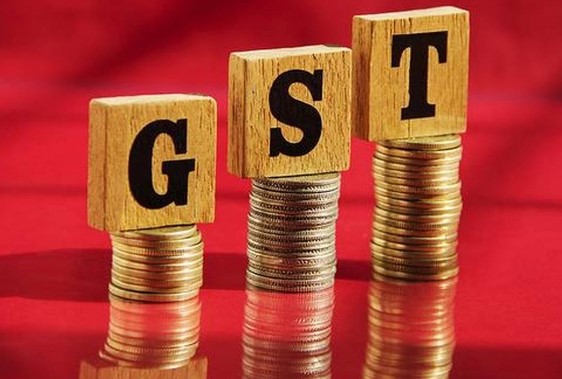GST Council May Cut Upfront Tax Appeal Payment to 7%
The GST Council, meeting on June 22, may reduce the upfront tax appeal payment from 10% to 7%. Additionally, the council is considering an amnesty scheme for pre-GST disputes and mandatory biometric-based Aadhaar authentication for suspicious GST registrants. These measures aim to ease business operations and enhance scrutiny. The amnesty scheme could help resolve past tax issues without heavy penalties, potentially announced in the upcoming budget.
Source: Economic Times
India’s Exports Rise 9.1% in May Amid Improving Outlook
India’s merchandise exports surged 9.1% year-on-year to $38.13 billion in May, driven by higher shipments of engineering goods, commercial vehicles, and smartphones. Imports increased 7.7% to $61.91 billion, widening the trade deficit to $23.78 billion, exceeding expectations of $19.5 billion. Analysts foresee a rebound in exports this fiscal year due to global trade recovery, government manufacturing incentives, and easing domestic inflation. Services exports were estimated at $30.16 billion for May.
Source: Reuters
Elon Musk’s $56 Billion Pay Package Approved by 77% of Tesla Investors
Tesla investors overwhelmingly approved Elon Musk’s $56 billion pay package, with 77% voting in favor. Despite institutional opposition, retail investors showed strong support. The package, the largest in U.S. corporate history, was initially backed by 73% of investors in 2018 but voided by a Delaware judge this year. The approval doesn’t resolve ongoing legal challenges. Investors also supported reincorporating Tesla in Texas and other governance changes.
Source: Financial Express
US Court Fines TCS $194 Million for Trade Secret Misappropriation
A US court fined Tata Consultancy Services (TCS) $194 million for misappropriating trade secrets from Computer Sciences Corporation (now DXC Technology). TCS faces $56 million in compensatory damages, $112 million in exemplary damages, and $26 million in prejudgment interest. TCS plans to appeal, believing the judgment won’t significantly impact its financials or operations. The court also imposed injunctions and other reliefs.
Source: Economic Times
Union Budget 2024 Expected in Mid-July Amidst Modi 3.0 Era
Finance Minister Nirmala Sitharaman is set to present the Union Budget for 2024-25 in the third week of July, following the first session of the 18th Lok Sabha ending on July 3. This marks the first full budget under Modi 3.0. Sitharaman, poised to make history with her seventh consecutive budget presentation, aims to emphasize welfare and investment. The exact date remains unannounced.
Source: Financial Express
Hyundai Plans Record $3 Billion IPO for Indian Unit
Hyundai Motor is preparing to sell up to 17.5% of its stake in Hyundai Motor India Ltd via an IPO, aiming to raise $2.5-$3 billion, potentially India’s largest IPO ever. The listing, Hyundai’s first outside South Korea, seeks to enhance financial independence from its parent company and bolster local operations, including EV sales and manufacturing expansion. The IPO filing is expected soon, with a final stake sale percentage possibly being lower than 17.5%.
Source: Reuters
India Reduces Windfall Tax on Petroleum Crude
India has cut the windfall tax on petroleum crude, a move aimed at easing the burden on the oil industry. This tax reduction is expected to provide financial relief to oil producers and boost investment in the sector. The windfall tax, initially imposed to capture the extraordinary profits earned by oil companies due to high crude prices, has been adjusted in response to changing market conditions.
Source: Economic Times
Bill Gates Discusses AI’s Impact on Jobs and Society
In a podcast with Zerodha founder Nikhil Kamath, Bill Gates highlighted AI’s potential to benefit humanity, particularly in education and productivity. Gates dismissed fears of AI eliminating software engineering jobs, labeling them as “alarmist.” He emphasized AI’s potential to support elderly and disabled individuals, while noting societal changes may occur over the next 20 years. Gates also defended capitalism for fostering freedom and innovation.
Source: Live Mint
Apple Faces EU Charges Over App Store Monopoly: What You Need to Know
The EU is set to charge Apple under the Digital Markets Act (DMA) for restricting competition on its App Store, as reported by FT. Despite Apple’s plan to permit alternative app stores, critics argue that its fee structure, with commissions up to 30%, remains unfair. This marks the first potential use of the DMA against Apple, with charges based on preliminary findings expected soon. EU industry chief Thierry Breton emphasized the need for fair digital markets.
Source: Mint
Bharti Airtel Prepays ₹79.04 Billion to Settle Spectrum Dues
Bharti Airtel has prepaid ₹79.04 billion ($946.41 million) to India’s telecom department, clearing all high-cost deferred liabilities from spectrum auctions in 2012 and 2015. This prepayment aims to reduce the company’s debt and improve its financial flexibility. The payment highlights Airtel’s commitment to managing its financial health amidst competitive pressures in the telecom sector.
Source: Reuters
AI Must Foster Progress and Well-Being for All: PM Modi
At the G7 Summit in Apulia, Italy, PM Modi emphasized the importance of prioritizing the concerns of the Global South, particularly Africa, during his address on AI, energy, and regional issues. Highlighting India’s “AI for All” mission, he stressed that AI should promote global progress and well-being. Modi also discussed India’s commitment to a human-centric AI approach and its goal of achieving net-zero emissions by 2070, urging international collaboration and environmental responsibility.
Source: Economic Times
India’s May Exports Surge 9.1% Amid Improving Outlook
India’s merchandise exports rose 9.1% year-on-year to $38.13 billion in May, driven by increased shipments of engineering goods, commercial vehicles, and smartphones. Imports also grew by 7.7% to $61.91 billion, widening the trade deficit to $23.78 billion. Analysts predict export growth will continue, aided by global trade recovery, government incentives, and easing inflation. Services exports were estimated at $30.16 billion, while Asia’s third-largest economy grew by 7.8% in Q1 2024.
Source: Reuters


Leave a Reply